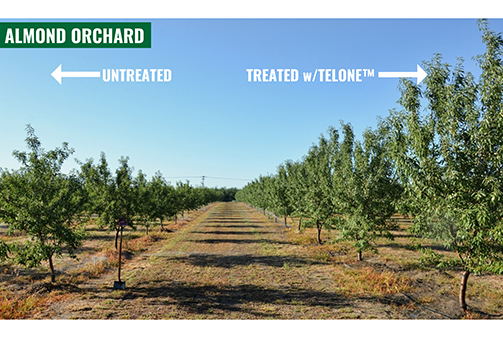Take Precaution, Free Trade Could Be Costly [Opinion]
Regardless of who wins the Presidential election, the future of trade policy will likely be an unknown for some time. Surrounding the election season was the debate over the Trans-Pacific Partnership (TPP). Donald Trump playing the isolationist, populist was clearly against it. Hillary Clinton was a big supporter of TPP until politics pushed her in the other direction.
During the recent Florida Fruit & Vegetable Association (FFVA) Annual Convention, a couple of informed speakers said, if elected, Clinton would find a way to reposition herself to be in favor or TPP. As for Trump, who knows which direction he might go.
By-and-large, most agricultural groups seem to favor TPP. I, for one, believe that an America involved in the world and seeking fair and open trade with our neighbors makes for a better country for all of us. Isolationist policies will only hurt us in the end. There is a world out there that needs us and our leadership.
Having said that, it doesn’t mean we can throw caution to the wind when it comes to trade. Take the TPP, which now spans thousands of pages. We all know the saying: The Devil is in the details.
I also was reminded of this during the FFVA Annual Convention when the widening of the Panama Canal was discussed. The expanded channel will allow passage of ships roughly twice as big as before. Ports in Florida are gearing up and expanding their capacity and ability to handle these larger ships. Florida Grower® magazine featured the work being done at Port Tampa Bay in our February 2016 cover story.
There are opportunities for trade and new markets with the Panama Canal expansion and the port’s building up its capacity. But, we can’t forget more trade means more imports coming to our shores as well. And, that means more opportunities for invasive pests to come in via cargo.
Florida has a long history of feeling the brunt of these pests. One only has to look at the psyllid and HLB’s devastating impact on one of Florida’s most important crops. With more trade, we have to redouble our efforts to protect ourselves from foreign pest invaders.
But, in some corners, we might be slacking on protections. For many years, USDA has required certain produce from warmer climate countries must enter the U.S. from above the 39th parallel — Philadelphia. This was done as a safety precaution to prevent invasive pests entering into the southeastern U.S.
The USDA now is allowing pilot programs to allow this produce to come directly into southern ports, including some in Florida. Shippers laud this development pointing to the ability to deliver fresher produce and savings on logistics.
There are safeguards, including a prolonged cold-treatment period aboard the ship and fumigation at the port before produce is unloaded. But, is that enough to protect your farm from the next invasive plague? There are some that have a healthy skepticism it is not.
This is a complex issue that we will be studying more closely in the coming months to determine if more should be done. While free trade is now the way of the world, we should not accept leaving our doors wide open to potentially devastating pests.










